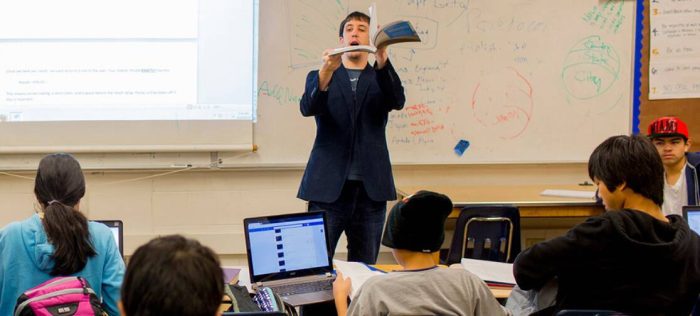Microsoft YouthSpark grants to help out 100 nonprofits in 55 countries
2 min. read
Published on
Read our disclosure page to find out how can you help Windows Report sustain the editorial team Read more

Microsoft is making some significant investments in education that go beyond simply providing a handful of software tools to students and faculty. With a three-year, $75 million YouthSpark investment announced by Microsoft CEO Satya Nadella last September, the company appears set to foster opportunities for teachers and students through their educational journey and beyond.
Corporate vice president and head of Microsoft philanthropies, Mary Snapp, took time out today to update on the status of the company’s on-going educational bet.
Today we are providing an update by announcing YouthSpark grants to 100 nonprofit partners in 55 countries. In turn, our partners will leverage the power and energy of local schools, businesses, and community organizations to create new and engaging opportunities for students to explore computer science. These partners will teach students valuable skills to help them prepare for and succeed in jobs that are open today across industries, along with new jobs that will be created. Our partners will build upon the work that Microsoft already has underway, including our commitments to computer science education through programs like Hour of Code with Code.org, BBC micro: bit and TEALS.”
Snapp juxtaposes her statements with current educational statistics that reveal “only 2.5 percent of US high school graduates go on to study computer science in college, and of this small percentage, only 1 in 5 computer science graduates is female.”
While Microsoft is also working at a more local level to establish partnerships with over 100 non-profit organizations, to boost the social awareness of computer science as a worthwhile endeavor, the company is also attacking the problem from a national level.
Even with $75 million and a three-year commitment to its efforts and its new non-profit grants, Snapp and Microsoft realize that no single entity will eradicate or even shorten the gap between students who have computer science skills and those who don’t. Microsoft is also working with government and policy makers to support more increased funding for computer science classes and related programs, that include US President Barack Obama’s Computer Science for All country-wide effort.
More news about upcoming projects, partnerships and progress will be given at Microsoft YouthSpark Summit later this month. However, in the interim, information about Microsoft’s YouthSpark program can be obtained from YouthSpark.com or from a list of supporting non-profit partners here.








